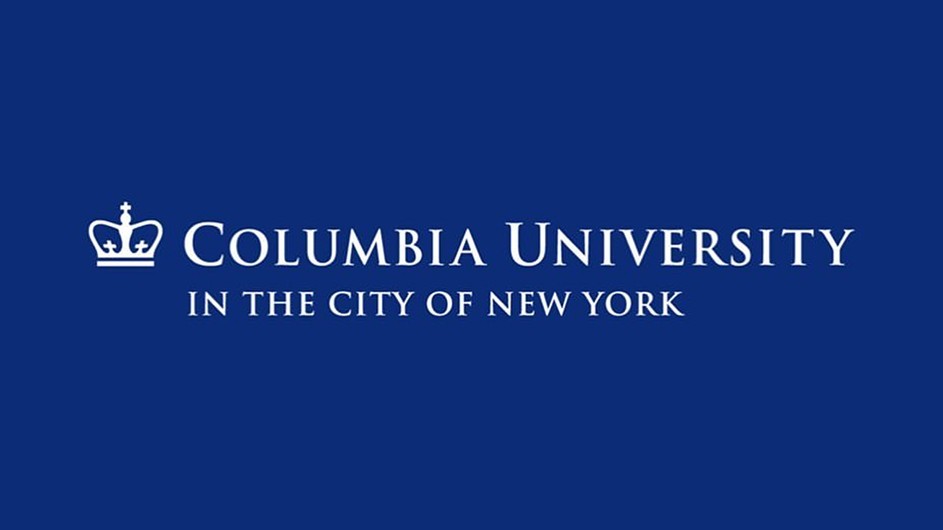Learn about her passion for astroparticle physics, why she donated her guitar, and what extreme sport she would like to do—again.
New research shows that the birds memorize the location of food using brain cell activity akin to a barcode.
The conversation focused on the task force’s first report and the experiences of Jews and Israelis at Columbia.
The GSAPP professor’s outdoor sculptures advocate for the experimental preservation of U.S. embassies.
How the 1970 solar eclipse set me on the path to becoming a Columbia astronomy professor.
The night of May 15, the Empire State Building will glow blue for Columbia Commencement. Here’s where to capture the best photos with it.
Columbia University faculty members pay tribute to the late Nobel Laureate and Princeton professor emeritus.
May 15 marks Columbia's largest celebrations of the Class of 2024, here are six things graduates and their guests should know.
Construction for Commencement and graduation ceremonies starts on April 12 on Morningside campus. Here are some spots on every campus to snap your photos and avoid the hubbub.
In statement, President Shafik calls March 24 event "an abhorrent breach of our values" and describes "actions which have been underway as a result."
A new type of investigational therapeutic in development has shown unprecedented tumor-fighting abilities.
This year’s honorees include Kizzmekia S. Corbett-Helaire, Zvi Galil, Barney S. Graham, Robert Reffkin, and Darren Walker.
A two-day conference at Columbia looks back at the Vietnam War and the lives it touched.
On April 8, Columbians gathered on Morningside campus to witness a partial solar eclipse.
In his new book, Dennis Yi Tenen presents AI as a matter of collaborative labor history.
Columbia biomedical engineers unveiled a groundbreaking new AI tool to study and diagnose heart function.
The findings suggest that those at the greatest risk are the least likely to receive postpartum mental health care.
A Columbia study showed that the technology can eradicate more than 99% of virus particles in a real-life setting outside a lab.
A new study suggests that the Antarctic Circumpolar Current will continue to speed up, hastening ice loss.
Bree Zhang isn’t just a dentist-in-training. She’s a visual artist and musician, too.
The discovery could lead to new types of drugs to prevent and treat the disease.
Co-writer Ann Cooper’s Newshawks in Berlin describes the perils of reporting from war zones.
Students, faculty, and staff ventured beyond New York City to witness eclipse totality this week, and showed us what they saw.
With Commencement, class days, and general graduation festivities around the corner, here's who we expect to speak to our graduates in celebration of their accomplishments.
A conversation with 2024 Bancroft Prize Winner Carolyn Woods Eisenberg (GSAS'71).
Columbia environmental scientist Catherine Ivanovich wants us to understand the impacts of the food we eat.
The prestigious prize will enable them to pursue independent projects of their choice.
Abbey Hsu (CC'24) and Kaitlyn Davis (CC'23) were both selected in the 2024 WNBA Draft, the first two selections in Columbia women's basketball history.
We're keeping track of the Columbia Lions who are headed to the Paris Olympics to compete this summer. Here's who to watch out for.
Postpartum Medicaid extension legislation should be applauded, while understanding its limitations and seeking more solutions.
She hopes to curate a career that blends policy, art activism, and human rights.
Here are the full opening statements from Columbia representatives before the U.S. House Committee on Education and the Workforce.
Tian Zheng, the Statistics department chair, is developing innovative tools to confront climate change and the opioid epidemic.
A new database offers communities, leaders, and researchers unprecedented access to climate data and cutting-edge models.
The University joins New York City mayor's office at Plant-Powered Carbon Challenge launch.
To deescalate the rancor and give us all a chance to consider next steps, I am announcing that all classes will be held virtually on Monday. During the coming days, a working group of Deans, university administrators and faculty members will try to bring this crisis to a resolution.
“The encampment raises serious safety concerns, disrupts campus life, and has created a tense and at times hostile environment for many members of our community. It is essential that we move forward with a plan to dismantle it,” wrote President Shafik.
Columbia researchers have created mice with hybrid brains—part mouse, part rat—that sense odors with their rat neurons.
We support the conversations that are ongoing with student leaders of the encampment, under the guidance of academic leaders. Our goal is a safe resolution of this crisis.
"A small group of academic leaders has been in constructive dialogue with student organizers to find a path that would result in the dismantling of the encampment and adherence to University policies going forward. Regretfully, we were not able to come to an agreement."
The new findings raise the possibility that anticancer drugs could be used to help prevent heart attacks.
"It is going to take time to heal, but I know we can do that together. I hope that we can use the weeks ahead to restore calm, allow students to complete their academic work, and honor their achievements at Commencement."
Making use of this new brain circuit could lead to new therapies for many immune disorders.
Warning letters from Medicare can safely cut prescribing of a powerful but risky drug, a study found.
